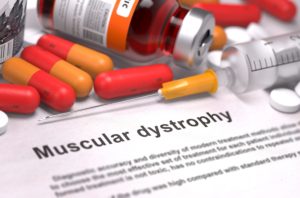Duchenne Muscular Dystrophy (DMD) Disease Overview:
Duchenne Muscular Dystrophy (DMD) Disease is a rare but devastating genetic disorder that primarily affects young boys, robbing them of their ability to lead normal lives. With advancements in medical research, diagnostic techniques, and therapeutic interventions, there is hope on the horizon. This article will delve into the various aspects of DMD, from diagnosis to treatment and emerging therapies.
The Market Competitors Listed Below are Revolutionizing Healthcare with Innovative Inventions:
Diagnostic Market Players-
- GE Healthcare
- Siemens Healthineers
- PerkinElmer
- Philips Healthcare
- Baylor Genetics
Treatment Market Players-
- Pfizer
- Merck & Co., Inc.
- Sanofi
- GlaxoSmithKline (GSK)
- Teva Pharmaceutical Industries Ltd.
- Mylan N.V.
Diagnostic Analysis:
Genetic Testing-
One of the pivotal advancements in DMD is genetic testing. A simple blood test or DNA analysis can identify mutations in the DMD gene, which encodes the dystrophin protein. These mutations are the root cause of the disease. Early diagnosis through genetic testing allows for proactive management and intervention.
Muscle Biopsy-
While genetic testing is a valuable diagnostic tool, a muscle biopsy can provide additional information. It helps in assessing the extent of muscle damage and can be particularly helpful in cases where genetic testing is inconclusive.
Clinical Assessment:
DMD progression varies from person to person, and regular clinical assessments are crucial for monitoring the disease's impact. These assessments include:
Physical Examination-
Physicians examine muscle strength, joint flexibility, and the progression of symptoms.
Cardiac Assessment-
DMD often affects the heart, and regular cardiac evaluations are vital to monitor heart function and prevent complications.
Pulmonary Function Testing-
Lung function tests are essential, as respiratory complications are a common issue in DMD patients.
Browse More Information:
https://www.diseaselandscape.com/genetic/duchenne-muscular-dystrophy-market-entry-Insights
Market Trends Analysis-
Understanding market trends in the context of DMD can shed light on research and treatment availability. The DMD market has seen considerable growth due to increased investment in research and development. Key market trends include:
- Rising awareness about DMD.
- Expanding clinical trials for emerging therapies.
- Collaborations between pharmaceutical companies and patient advocacy groups.
Treatment Analysis-
Treatment for DMD focuses on managing symptoms, improving quality of life, and slowing disease progression. While there is no cure, several interventions are available, including:
Steroid Therapy-
Corticosteroids like prednisone and deflazacort help maintain muscle strength and delay muscle degeneration.
Physical Therapy-
Physical therapy is essential to maintain muscle function and prevent contractures.
Cardiac Medications-
Medications like angiotensin-converting enzyme (ACE) inhibitors and beta-blockers help manage heart problems.
Assistive Devices-
Mobility aids and orthopedic interventions can enhance the quality of life for DMD patients.
Emerging Therapies in Development-
Promising developments are occurring in the field of DMD, offering hope for potential treatments. Notable emerging therapies include:
Gene Therapy-
Gene therapy aims to replace or repair the mutated DMD gene, potentially providing a cure for DMD.
Exon Skipping-
This approach targets specific genetic mutations by skipping faulty exons in the DMD gene, allowing for a partially functional dystrophin protein.
CRISPR Technology-
CRISPR-based gene-editing techniques show potential in correcting the genetic mutations responsible for DMD.
Clinical Trial Assessment:
Clinical trials are essential for testing the safety and efficacy of emerging DMD therapies. Patients and caregivers are encouraged to consider participation in these trials to contribute to medical advancements and potentially benefit from cutting-edge treatments.
Conclusion:
Duchenne Muscular Dystrophy is a complex and challenging disease, but significant advancements have been made in recent years. From improved diagnostic techniques to emerging therapies, the outlook for DMD patients is more hopeful than ever before. Early diagnosis and a comprehensive treatment plan, including physical therapy and medication, can significantly improve the quality of life for those with DMD. With ongoing research and clinical trials, there is real promise for a brighter future for individuals and families affected by DMD.
Browse Through More Genetic Diseases Research Reports
Related Reports:
Bleeding Disorders Unveiled: Navigating the Challenges of Hemophilia
Confronting Solid Tumors: Understanding the Challenges and Solutions
Spinal Muscular Atrophy (SMA): Unveiling the Road to Hope and Treatment
Understanding Cystic Fibrosis: Diagnosis, Treatment, Market Trends, and Future Prospects
Contact Us:
Disease Landscape Insights LLP
6th Floor, Sr No.207, Office A H 6070 Phase 1
Solitaire Business Hub, Viman Nagar
Pune, Maharashtra, 411014.
Sales Contact: +44-2038074155
Asia Office Contact: +917447409162
Email: ajay@diseaselandscape.com
Email: vishal@diseaselandscape.com
Blog: https://www.diseaselandscape.com/blogs
Case Study: https://www.diseaselandscape.com/casestudies





